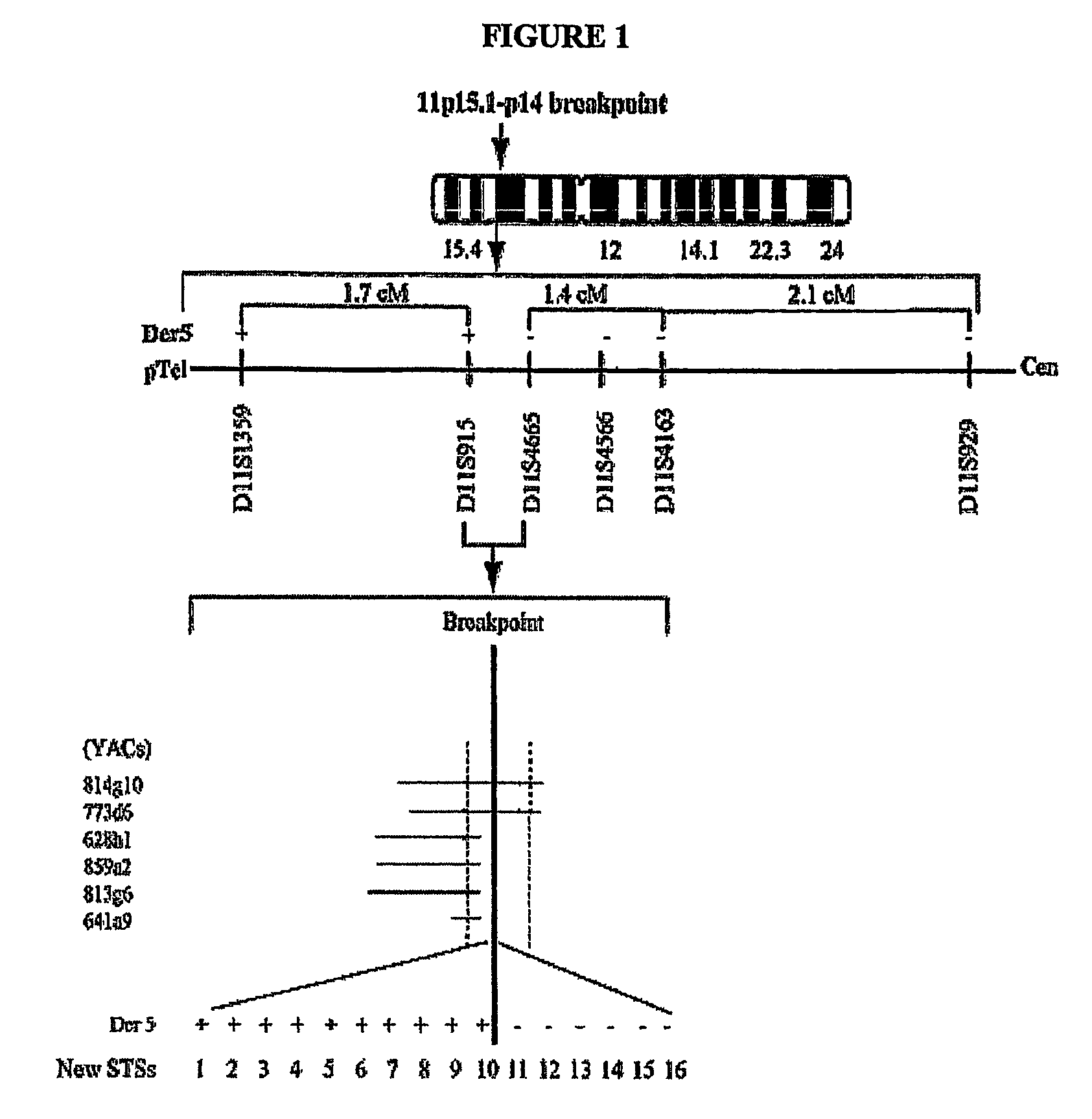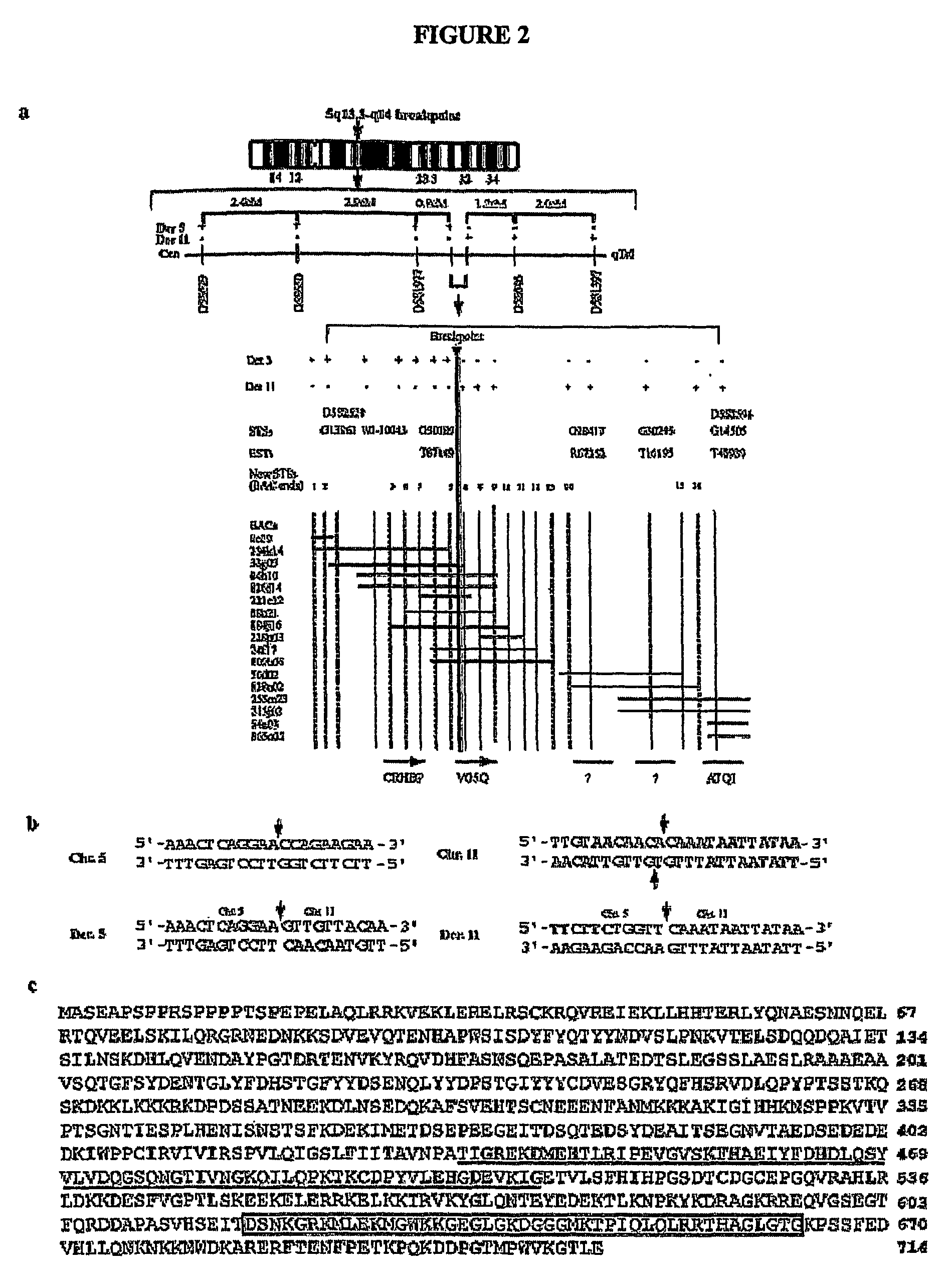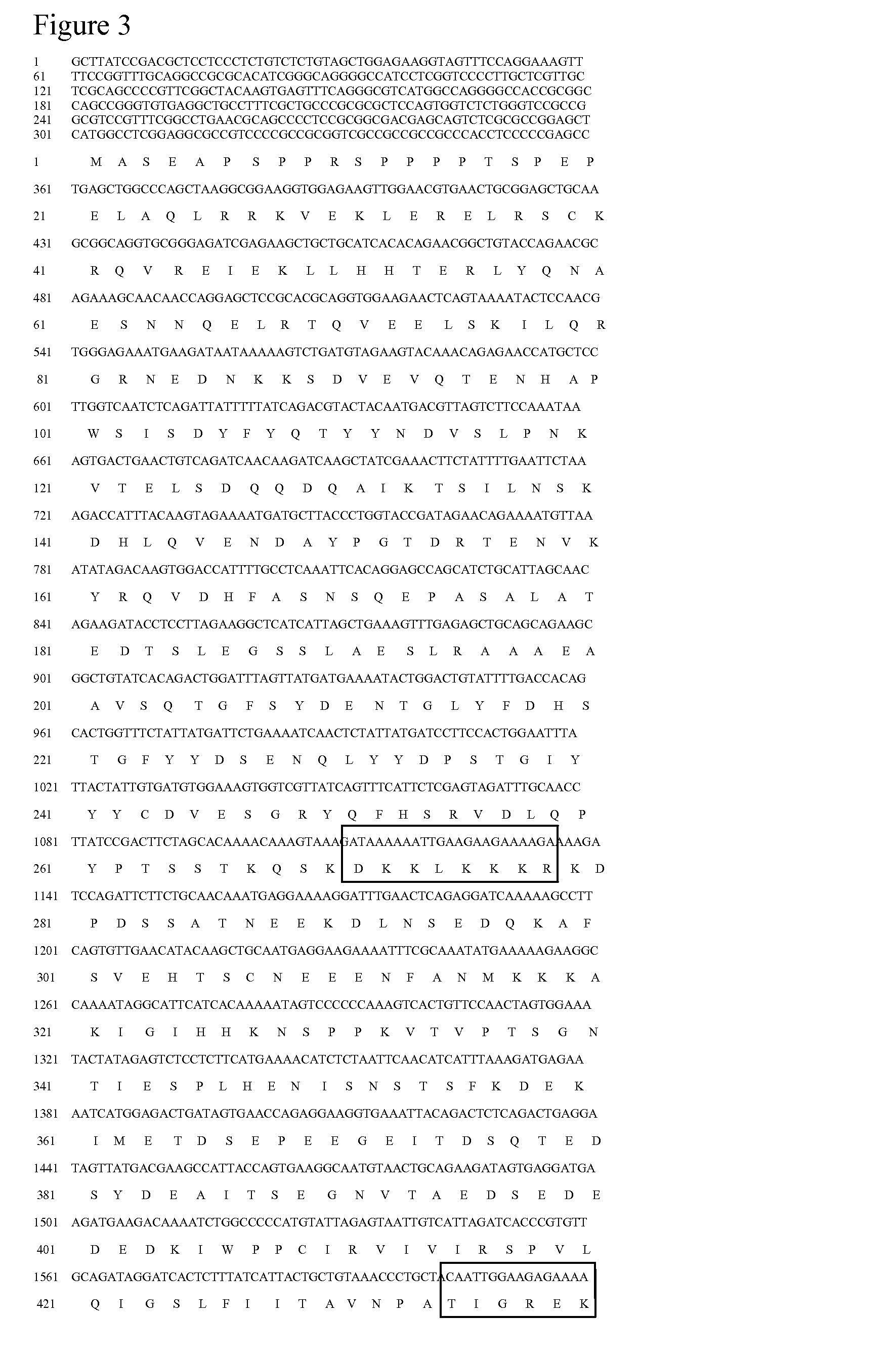Gene and protein associated with angiogenesis and endothelial cell-specific apoptosis
a technology of angiogenesis and gene and protein, applied in the direction of angiogenin, drug composition, peptide, etc., can solve the problems of insufficient angiogenesis, excessive or insufficient growth of new blood vessels, body losing control over angiogenesis, etc., to inhibit endothelial tube formation and suppress endothelial vg5q
- Summary
- Abstract
- Description
- Claims
- Application Information
AI Technical Summary
Benefits of technology
Problems solved by technology
Method used
Image
Examples
example 1
Identification of the KTS Susceptibility Gene—VG5Q
[0116]A positional cloning approach was employed to investigate the pathogenic mechanism of KTS and to identify its susceptibility gene. A translocation of t(5;11)(q13.3; p15.1) has previously been found to be associated with KTS. Whelan, A. J., et al. Klippel-Trenaunay-Weber Syndrome Associated With a 5:11 Balanced Translocation. Am. J. Med. Genet. 59:492-494 (1995). PCR analysis with somatic cell hybrids containing only the derivative chromosome 5 (hybrid H7) or the derivative chromosome 11 (hybrid H34) defined the precise locations of the two translocation breakpoints, thus allowing for the identification of the genes close to the breakpoints. Genomic sequences generated from BACs (FIG. 2a) were used for BLAST analysis to identify ESTs (expressed sequence tags) in the NCBI databases. At the 5q13.3 breakpoint region, five overlapping ESTs (HSU84971, AI939311, AA311507, AI925946, and AI037948) were identified that showed identity to...
example 2
Expression of VG5Q in Endothelial Cells
[0123]Endothelial expression of VG5Q: Northern blot analysis revealed a single 4.5 kb transcript in human microvascular endothelial cells (HMVEC, FIG. 5a). VG5Q was ubiquitously expressed in all tissues examined (FIG. 5c), presumably due to the presence of blood vessels embedded in these tissues. Western blot analysis with a polyclonal antibody against a synthetic polypeptide immunogen based on a unique VG5Q sequence recognized a predicted 87 kDa protein present in extracts of human endothelial cells (FIG. 5b). RT-PCR analysis revealed expression of VG5Q mRNA in different cell lines (FIG. 5d).
[0124]Using immunostaining with the anti-VG5Q antibody, it was found that VG5Q was expressed in blood vessels embedded in mouse heart, tail, and kidney tissues, but not in nonvascularized areas. The endothelial cell layer was clearly distinguishable from the smooth muscle cell in the sections, and VG5Q signal co-localized with CD31 signal (endothelial cell...
example 3
KTS is Associated with a Mutation in VG5Q
[0128]Because VG5Q is the only gene located near the two breakpoints of translocation t(5;11) associated with KTS it was considered a candidate gene for the disease. To test whether VG5Q is a KTS gene, it was determined whether the t(5;11) translocation affects the expression of VG5Q. The 5q13.3 translocation breakpoint is located in the promoter / regulatory region of VG5Q and is only 1343 bp upstream from the beginning of VG5Q cDNA (FIG. 4a). The VG5Q promoter / regulatory region was fused to the luciferase gene (FIG. 4b, construct ii). A luciferase reporter gene was also constructed for the translocation junction fragment from derivative chromosome 11, which precedes the VG5Q coding region in the KTS patient with translocation t(5;11), as shown in FIG. 4b; construct iii. VG5Q promoter with the translocation junction fragment (construct iii) increased its expression by 3 fold in human umbilical vein endothelial cells (HUVEC) and by 2.7 fold in ...
PUM
| Property | Measurement | Unit |
|---|---|---|
| humidity | aaaaa | aaaaa |
| diameter | aaaaa | aaaaa |
| concentrations | aaaaa | aaaaa |
Abstract
Description
Claims
Application Information
 Login to View More
Login to View More - R&D
- Intellectual Property
- Life Sciences
- Materials
- Tech Scout
- Unparalleled Data Quality
- Higher Quality Content
- 60% Fewer Hallucinations
Browse by: Latest US Patents, China's latest patents, Technical Efficacy Thesaurus, Application Domain, Technology Topic, Popular Technical Reports.
© 2025 PatSnap. All rights reserved.Legal|Privacy policy|Modern Slavery Act Transparency Statement|Sitemap|About US| Contact US: help@patsnap.com



